Seal has Common Variable Immunodeficiency Disorder (CVID), a type of primary immune deficiency (PID). This means that her body does not produce protective antibodies to defend itself against pathogens like bacteria or viruses, leaving Seal and others like her extremely vulnerable to infections -- even without a global pandemic.
The 45-year-old has taken extreme care during the crisis to avoid contracting Covid-19, but her situation is unlikely to change in the long-term, even as governments fixate on the glimmer of hope provided by vaccines against the coronavirus.
Tentative optimism has emerged about an exit route from the crisis as multiple forms of Covid-19 shots are rolled out across the UK and Europe.
UK Health Secretary Matt Hancock has pledged that every British adult will be offered a Covid-19 vaccine by the autumn of 2021, following pressure to ramp up vaccination as cases in the country continue to rise, with more than 3.7 million infections reported to date.
But while most people will benefit from Covid-19 vaccines, those with impaired immune systems, like Seal, may not respond to them in the same way as their peers.
"Many individuals who are clinically extremely vulnerable will have some degree of immunosuppression or be immunocompromised and may not respond as well to the vaccine," reads the advice from Britain's Joint Committee on Vaccination and Immunisation (JCVI.)
This is because vaccines are designed to generate an immune response from the human body, by causing it to produce antibodies and T-cells that help fight specific infections. But for people with immune deficiencies, the body may just make a few of these antibodies or T-cells — or none at all — leaving them vulnerable to infection.
Seal's body struggles to make antibodies, meaning vaccines are unlikely to provide her with enough protection. For this reason, she plans to shield for the long haul, even as the vaccine rollout intensifies.
The UK drug regulator MHRA has approved three Covid-19 vaccines, one from BioNTech/Pfizer, another from Oxford/AstraZeneca and a third from Moderna. All three vaccines are safe for people with impaired immune systems to take, but they are advised to continue to shield even after inoculation given that they may not develop immunity to the coronavirus.
"Those who are clinically extremely vulnerable should continue to follow government advice on reducing their risk of infection," the JCVI advice reads.
"I'm happy to have the vaccine, 100%. [But] it won't really do much for me," Seal told CNN. "It's unlikely I'll get antibodies, looking at other vaccines [I've had]. But I'll have it."
Doctors gave Seal the pneumococcal vaccine, also known as the pneumonia shot, when diagnosing her with CVID to test her body's response to the vaccine. A blood test four weeks later found she had not created any antibodies in response to it. She was later diagnosed with CVID.
'I can't give my son a hug'
Due to her condition, Seal has worked from home as an IT consultant since before the pandemic.
Since March 2020, she has stayed largely indoors in her home in Peterborough in the UK. Her partner does the grocery shopping and walks their dog.
The mother of two does visit her allotment, which she says has helped her cope amid the crisis. "It kept me sane," she told CNN, adding that she has found it easy to socially distance from others in the outdoor space.
Seal shares her condition with her 19-year-old daughter Ella Lamy, who lives with her. Lamy was meant to begin university in September 2020 but delayed her studies for a year due to the pandemic. She, too, has largely stayed at home since spring 2020, working remotely in a customer service role.
"I've had friends of mine who I don't want to be friends with right now," the teenager told CNN, explaining that they "try to justify" breaking social distancing rules. Lamy added that she misses her best friend and her boyfriend, who she has not seen regularly since last August.
Seal's 21-year-old son used to split his time between her household and that of her ex-husband, but since March he has been living full time with his father.
"I haven't lived with [my son] since March," Seal said. "I see him, and I can't give him a hug. Even when we're not in lockdown I can't give him a hug."
Seal says that her and her daughter's ability to return to normal life depends on the willingness of others to abide by the UK's lockdown restrictions and to take the vaccine. This will help Covid-19 infection rates fall in the community, making the pair less likely to become infected.
"We need to depend on other people taking the vaccine," Lamy told CNN.
Promising research
According to the British Society of Immunology around six million people worldwide have a PID, with around 5,000 estimated to be living in the UK.
Added to this group are others with vulnerable immune systems, such as organ transplant recipients and cancer patients. The UK's NHS says it facilitated nearly 4,000 transplants between 2019 and 2020 alone.
But Beate Kampmann, professor of pediatric infection & immunity at the London School of Hygiene & Tropical Medicine (LSHTM) and director of LSHTM's vaccine center, highlights that "not every immunocompromised person will be the same." This means some may produce antibodies while others do not produce any. "Being immunocompromised is a huge spectrum," she said.
Kampmann believes that those with impaired immune systems should have their immune responses to other vaccines such as tetanus examined, to see whether their bodies manage to produce antibodies across the board.
"Studies [also] need to be done on the [Covid-19] vaccine immune response in these groups of people and this could be used to inform strategies," she said.
David Salisbury, a former director of immunisation at the UK's Department of Health and associate fellow at Chatham House, points to the potential of other treatments for this group, such as the possible use of monoclonal antibodies against Covid-19. These could enable people like Seal and Lamy to re-enter society, he believes.
"There are things coming that we can be hopeful about," Salisbury said. "But I think we are in it for the long haul. There's still a lot to do."
Monoclonal antibodies are proteins made artificially in the lab that mimic the ability of your immune system to fight off pathogens like viruses, offering immediate protection.
Unlike vaccines, which train the immune system itself to produce antibodies, these are injected directly into the blood to fight off particular infections, according to researchers at University College London Hospital [UCLH.]
Several studies on monoclonal antibodies are underway worldwide. In the US, the FDA has also granted emergency use authorization for Eli Lilly's monoclonal antibody, bamlanivimab, for the treatment of people in the early stages of Covid-19.
In the UK, the country's flagship Recovery trial is exploring multiple potential treatments for Covid-19, including monoclonal antibodies, while teams at UCLH are leading two trials focused on monoclonal antibodies — with one trial including people who may not respond to vaccines.
UCLH is currently recruiting for this trial, called PROVENT, which will research the effect of two investigational monoclonal antibodies in protecting against Covid-19 in people who may not respond to vaccination or are at increased risk of Covid-19 infection
"We will be recruiting people who are older or in long-term care, and who have conditions such as cancer and HIV which may affect the ability of their immune system to respond to a vaccine," UCLH infectious diseases consultant Dr. Nicky Longley said in a press release in December 2020.
"We want to reassure anyone for whom a vaccine may not work that we can offer an alternative which is just as protective."
'Cocooning' to protect the vulnerable
Fiona Loud, policy director of Kidney Care UK believes that the best way forward for vulnerable patients is for them to have the vaccine — as they may generate a partial immune response — as well as the people they are in close contact with.
Loud works with kidney patients and herself received a kidney transplant 14 years ago. She told CNN that she hadn't hugged her adult daughter for nearly a year, and did not see her over the Christmas break.
The strategy she suggests is called cocooning, where those around vulnerable individuals are vaccinated in order to provide indirect immunization.
The JCVI has said that this strategy may be examined in the future, but that it first needs sufficient evidence on the effect of Covid-19 vaccines on transmission. It is currently unclear if any of the vaccines prevent transmission.
This data will be gathered as vaccines are rolled out and the world hopes for society to reopen. But most of those with impaired immune systems will continue to shield, awaiting the findings and otherwise dependent on the actions and health of those around them.
"What we would say to the public is: Please be empathetic," said Loud.
Ella Lamy had just finished school when the pandemic struck.
"I was [meant to] start my life," she told CNN. But now, "my life literally depends on the actions of other people."
Article From & Read More ( Life after Covid: The people who will re-enter society last - CNN )




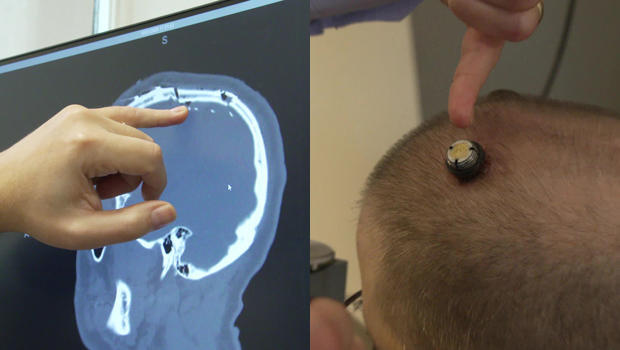
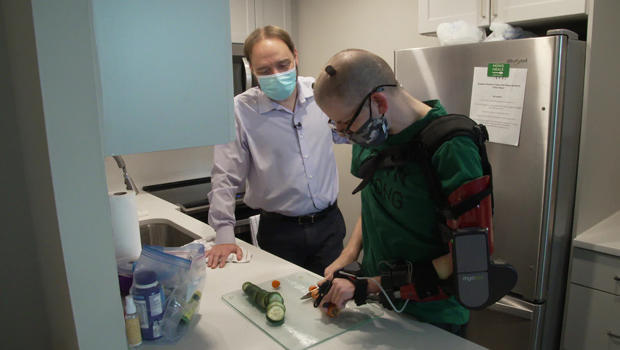




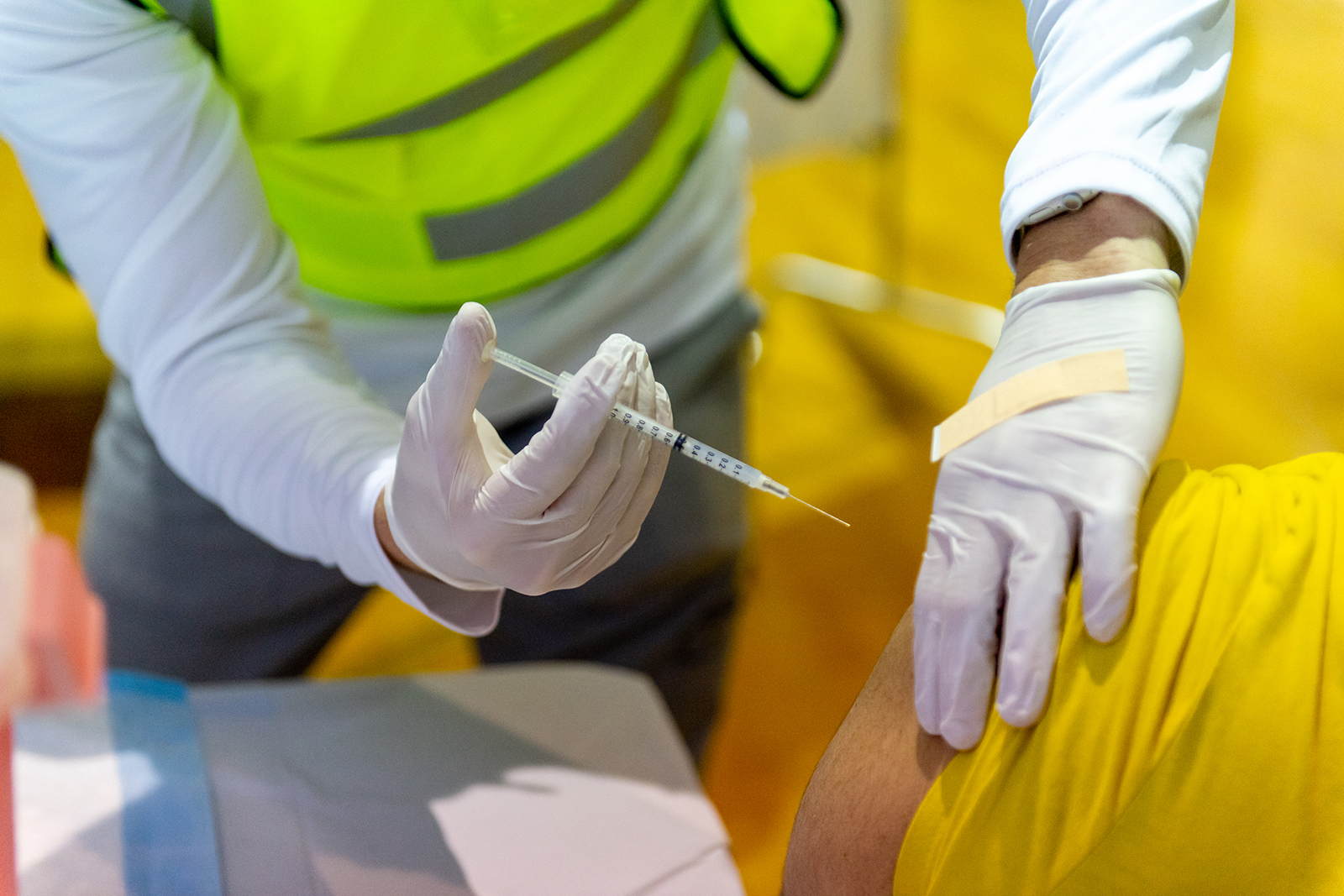



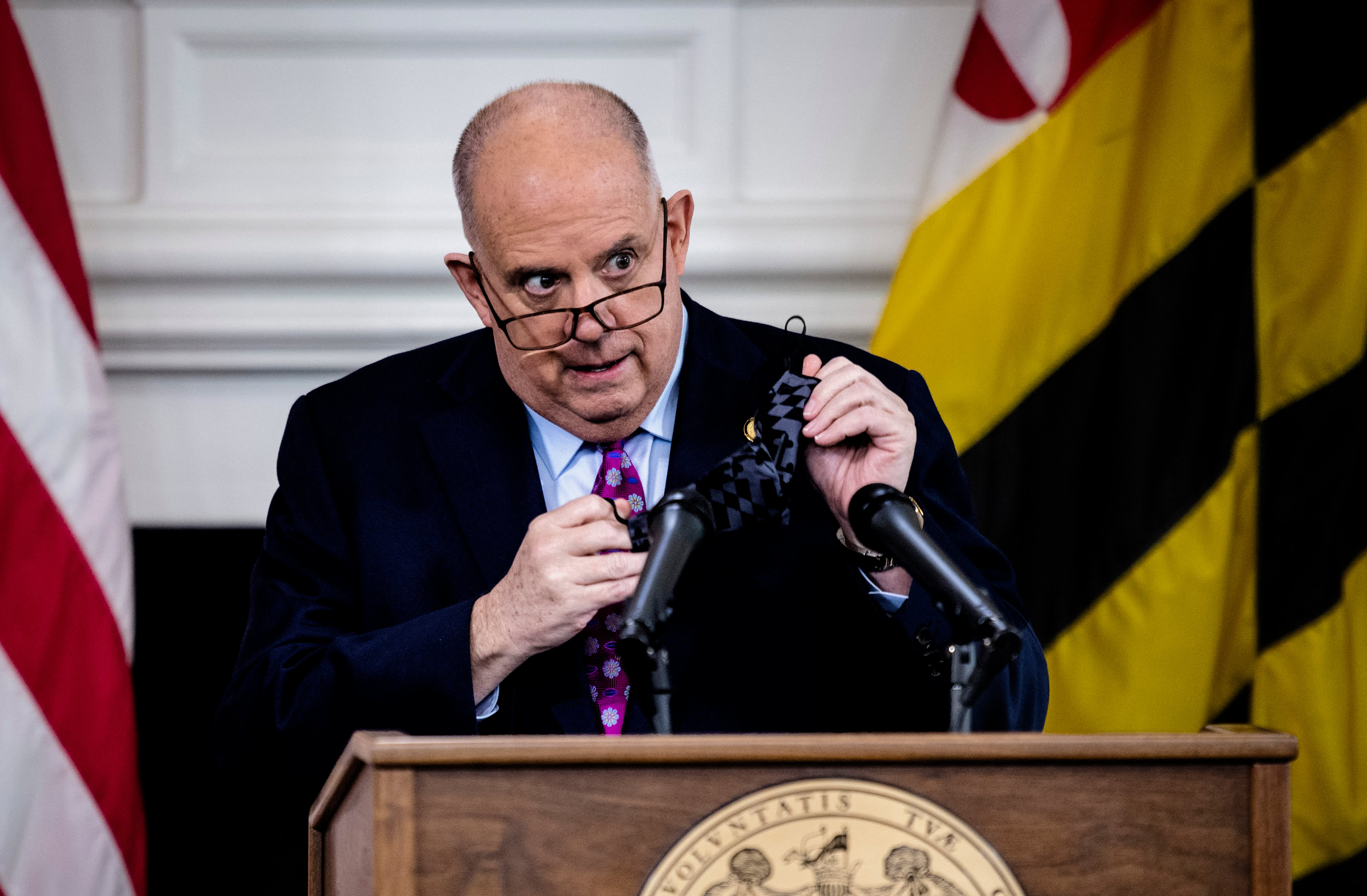
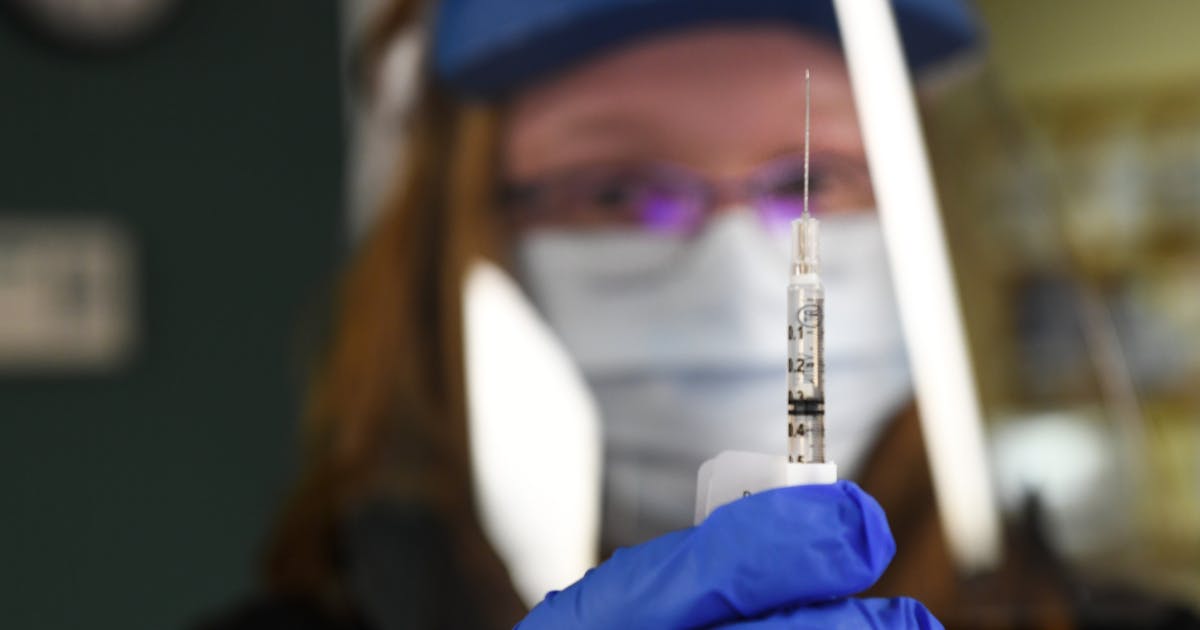
:strip_exif(true):strip_icc(true):no_upscale(true):quality(65)/d1vhqlrjc8h82r.cloudfront.net/01-31-2021/t_9008916ae5f34fa68523a90bea88faf7_name_image.jpg)
:strip_exif(true):strip_icc(true):no_upscale(true):quality(65)/cloudfront-us-east-1.images.arcpublishing.com/gmg/WXSOBLS7GZBUBMLWA7Z5ZR7BT4.jpg)